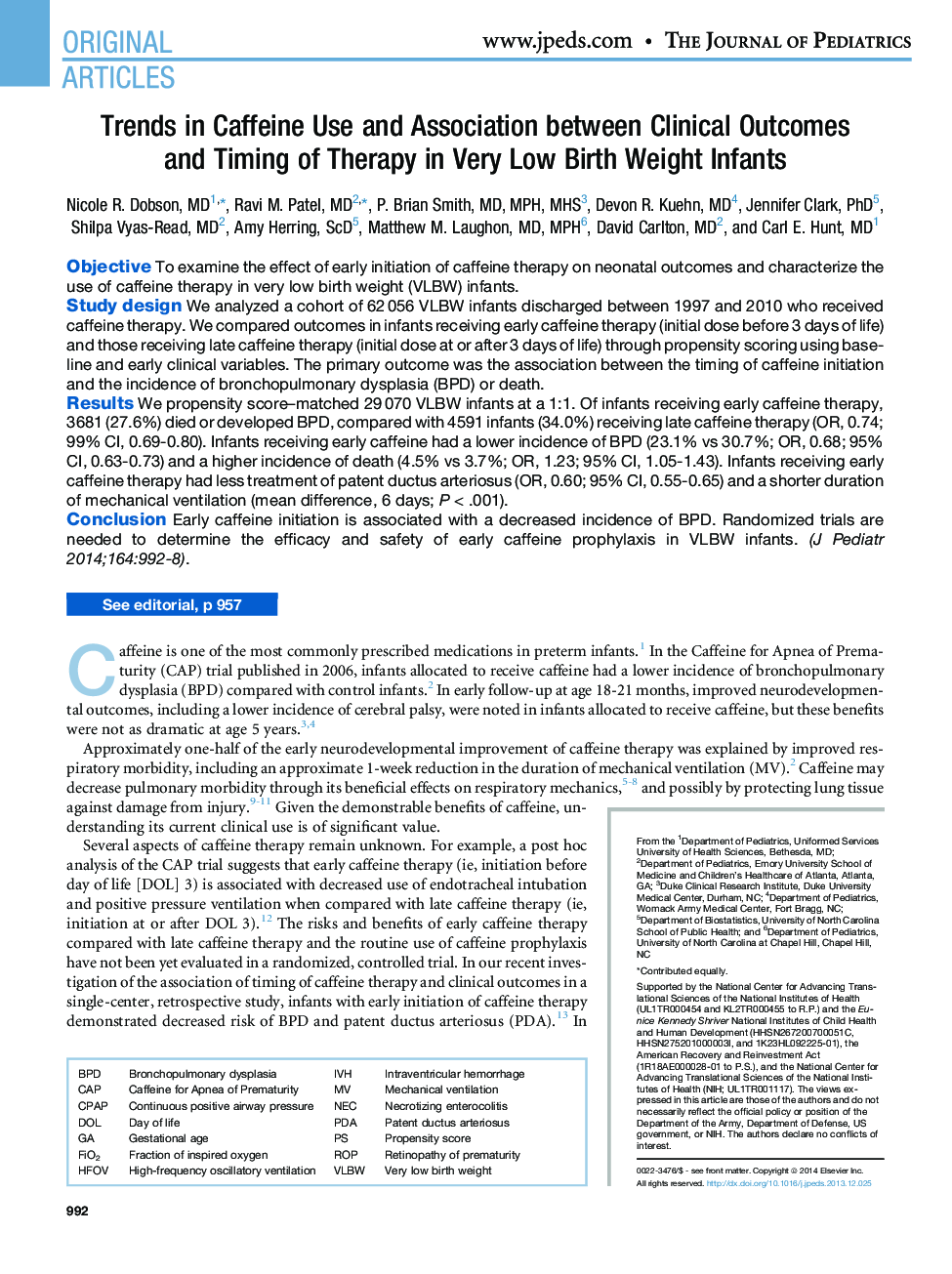| Article ID | Journal | Published Year | Pages | File Type |
|---|---|---|---|---|
| 6222136 | The Journal of Pediatrics | 2014 | 10 Pages |
ObjectiveTo examine the effect of early initiation of caffeine therapy on neonatal outcomes and characterize the use of caffeine therapy in very low birth weight (VLBW) infants.Study designWe analyzed a cohort of 62â056 VLBW infants discharged between 1997 and 2010 who received caffeine therapy. We compared outcomes in infants receiving early caffeine therapy (initial dose before 3 days of life) and those receiving late caffeine therapy (initial dose at or after 3 days of life) through propensity scoring using baseline and early clinical variables. The primary outcome was the association between the timing of caffeine initiation and the incidence of bronchopulmonary dysplasia (BPD) or death.ResultsWe propensity score-matched 29â070 VLBW infants at a 1:1. Of infants receiving early caffeine therapy, 3681 (27.6%) died or developed BPD, compared with 4591 infants (34.0%) receiving late caffeine therapy (OR, 0.74; 99% CI, 0.69-0.80). Infants receiving early caffeine had a lower incidence of BPD (23.1% vs 30.7%; OR, 0.68; 95% CI, 0.63-0.73) and a higher incidence of death (4.5% vs 3.7%; OR, 1.23; 95% CI, 1.05-1.43). Infants receiving early caffeine therapy had less treatment of patent ductus arteriosus (OR, 0.60; 95% CI, 0.55-0.65) and a shorter duration of mechanical ventilation (mean difference, 6 days; P < .001).ConclusionEarly caffeine initiation is associated with a decreased incidence of BPD. Randomized trials are needed to determine the efficacy and safety of early caffeine prophylaxis in VLBW infants.
